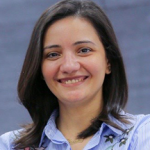Summary
Background
There is growing interest in climate change and clean energy in the Middle East and North Africa (MENA), a region that is highly affected by climate change but that is also endowed with abundant renewable energy (RE) sources. The literature on women, gender, and climate change in the region is limited but expanding. Existing studies and documentation of meetings and conferences on the topic show that women often play significant roles in attempts to address climate change and in attempts to transition to clean energy. Against this backdrop, this policy research report investigates the relationship between gender, climate change, and the transition to clean energy in the MENA region. It emphasizes the interdependence of concerns about the transition to clean energy on one hand and ensuring gender equality and social justice on the other.
Methods
In addition to a review of academic literature, policy reports, and relevant video recordings, this report draws on quantitative analysis conducted using Economic Research Forum’s (ERF) Renewable Energy Firm Surveys for three countries in the region: Egypt, Jordan, and Morocco.
Findings and policy recommendations
The findings show that a firm’s size, the age of the top manager, and sector of operation are all significant determinants of a firm’s decision to transition to clean energy in these three countries. Moreover, a country’s context matters. A firm operating in Jordan or Morocco, for example, has significantly higher odds of using clean energy compared to a firm operating in Egypt. While quantitative research in three MENA countries did not find a significant impact of gender diversification in MSMEs on transition to clean energy, the report highlights factors that contribute to women’s underrepresentation in high-paying technical jobs in MSMEs, including dominant cultural norms, and their disproportionate role in carrying out unpaid work within the household. The role of women in the clean energy transition in the three countries requires further investigation. We also highlight the need to think about climate change in relation to broader questions in the region, such as gender equality, conflict and peace, democracy, and respect for human rights.

Speakers
Nada Mustafa Ali
Assistant Professor, School for Global Inclusion and...

Research Fellows
Racha Ramadan
Professor, Faculty of Economics and Political Sciences,...


